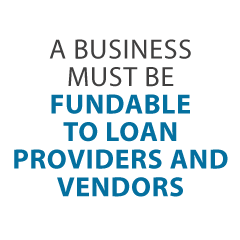How to Build Business Credit in 30 Days
Have you ever wondered; how long does it take to build credit? You, too, can build business credit in 30 days! Here’s how and why.
Building better business credit means that your small business gets chances you never felt that you would. You can get brand-new equipment, bid on buildings, and cover the company payroll. And you can do so even when times are a bit lean. This is specifically helpful in seasonal businesses. That is because you can go for calendar months with just hardly any sales.
Due to this, you need to tackle growing your company credit. Enhance and maintain your scores and you will have these chances. Do not, and either you do not get these business opportunities, or they will set you back a lot more. And no business owner wants that.
You will need to understand what affects your small business credit before you can make it better.
1. Credit History Length Is Vital
This is in a nutshell how long your business has been using company credit. Obviously newer businesses will have short credit histories. While there is not too much you can specifically do about that, do not fret.
Credit reporting agencies will also look into your personal credit score and your very own background of payments. If your own personal credit is good, and in particular if you have a fairly extensive credit history, then your individual credit can come to the rescue of your company. That is, you did not just get your very first credit card not too long ago.
Obviously, the opposite is also true. Hence, if your private credit history is poor, then it can affect your business credit scores until your business and personal credit can be split.
2. Your Payment History Truly Matters
Late repayments will affect your company credit score for a good seven years. If you pay your business (and personal) debts off, as quickly as possible and as fully as possible, guess what happens? That is when you can make a very real difference when it relates to your credit scores.
Make sure to pay on schedule and you will reap the rewards of promptness.
3. Your Personal Credit Can Affect Your Business Credit
A bad business year could wind up on your personal credit score. And just in case your small business has not been around for too long, it will directly have an effect on your biz credit. But you can still start building business credit with bad personal credit.
Fortunately, you can unlink them both by taking steps to uncouple them. As an example, you can get credit cards solely for your business, or you open up business checking accounts or other business bank accounts (or even get a business loan). And then the credit reporting bureaus will start to treat your private and corporate credit separately.
Also, make sure to incorporate. Or at least file a DBA (doing business as) status—but incorporating is better.
You can also pay for your company’s invoices with your business credit card or checking account. And make certain it is the company’s full name on the bill and not your own. This is how to build credit with a credit card.
4. The Credit Reporting Bureaus Can Get It Wrong
Are you asking yourself: how to fix my credit in 30 days? Just the same as each and every organization out there, credit reporting agencies just like Equifax and Experian are only as good as their data.
Remain on top of these reports and challenge charges with records and crystal clear communications. Do not just allow them to stay wrong! You can fix credit in 30 days!
And while you’re at, it you should also be monitoring the credit reporting bureau which just handles personal and not company credit. So, that is TransUnion. If you do not know the way to pull a credit report, do not worry. It’s simple. It’s how to fix credit score in 30 days.
And say fix my credit in 30 days!
5. The Method
Business credit is credit in a small business’s name. It doesn’t attach to a business owner’s personal credit, not even if the owner is a sole proprietor and the solitary employee of the business.
Because of this, an entrepreneur’s business and personal credit scores can be very different. Build business credit because it can only help your business. And it can be how to start a business in 30 days.
The Benefits
Considering that company credit is separate from consumer, it helps to secure a small business owner’s personal assets, in the event of court action or business bankruptcy.
Also, with two distinct credit scores, a small business owner can get two separate cards from the same merchant. This effectively doubles buying power.
Another advantage is that even startup ventures can do this. Going to a bank for a business loan can be a recipe for disappointment. But building business credit, when done correctly, is a plan for success.
Personal credit scores rely on payments but also various other elements like credit usage percentages.
But for business credit, the scores actually merely depend on whether a company pays its debts punctually.
6. The Process
Building company credit is a process, and it does not occur automatically. A company needs to proactively work to develop business credit.
Nevertheless, it can be done easily and quickly, and it is much speedier than developing individual credit scores.
Merchants are a big aspect of this process.
Carrying out the steps out of order will result in repetitive rejections. Nobody can start at the top with business credit.
7. Company Fundability™
A business needs to be Fundable to lending institutions and vendors.
Therefore, a business will need a professional-looking web site and e-mail address. And it needs to have site hosting from a company such as GoDaddy.
In addition, business telephone numbers should be toll-free (800 exchange or similar).
A company will also need a bank account dedicated only to it, and it needs to have every one of the licenses essential for running.
Licenses
These licenses all must be in the accurate, correct name of the company. And they need to have the same company address and phone numbers.
So bear in mind, that this means not just state licenses, but possibly also city licenses. Licenses are vital when you need to score small business funding.
8. Working with the Internal Revenue Service
Visit the IRS website and get an EIN for the small business. They’re totally free. Pick a business entity like corporation, LLC, etc.
A company can begin as a sole proprietor. But they should switch to a sort of corporation.
This is in order to reduce risk. And it will make best use of tax benefits.
A business entity will matter when it comes to taxes and liability in case of litigation. A sole proprietorship means the business owner is it when it comes to liability and tax obligations. No one else is responsible.
9. Starting the Business Credit Reporting Process
Begin at the D&B website and get a free D-U-N-S number. A D-U-N-S number is how D&B gets a small business into their system, to produce a PAYDEX score. If there is no D-U-N-S number, then there is no record and no PAYDEX score.
Once in D&B’s system, search Equifax and Experian’s web sites for the company. You can do this at www.creditsuite.com/reports. If there is a record with them, check it for accuracy and completeness. If there are no records with them, go to the next step in the process.
By doing so, Experian and Equifax will have activity to report on.
Vendor Credit
First you must establish trade lines that report. This is also called vendor credit. Then you’ll have an established credit profile, and you’ll get a business credit score.
And with an established business credit profile and score you can begin getting more credit.
These varieties of accounts often tend to be for the things bought all the time, like shipping boxes, ink and toner, and office furniture.
But first off, what is trade credit? These trade lines are credit issuers who will give you initial credit when you have average credit score or none now. Terms are ordinarily Net 30, instead of revolving.
Hence, if you get approval for $1,000 in vendor credit and use all of it, you must pay that money back in a set term, such as within 30 days on a Net 30 account.
A good example of such a vendor is the Business T Shirt club.
Details
Net 30 accounts must be paid in full within 30 days. 60 accounts need to be paid in full within 60 days. Unlike with revolving accounts, you have a set time when you have to pay back what you borrowed or the credit you made use of.
To kick off your business credit profile properly, you need to get approval for vendor accounts that report to the business credit reporting bureaus. When that’s done, you can then make use of the credit.
Then repay what you used, and the account is on report. You can have a D&B business credit profile or an Equifax business credit profile. Or you might have a business credit profile with Experian.
Your card may even be reported to the Small Business Financial Exchange.
Vendor Credit – It Helps
Not every vendor can help in the same way true starter credit can. These are vendors that will grant an approval with hardly any effort. You also want them to be reporting to one or more of the big three CRAs: Dun & Bradstreet, Equifax, and Experian.
You want 3 of these to move onto the next step.
This is how to build a business credit profile. Vendors are a terrific way to get business credit fast. They will often want you to already have a business bank account.
10. Monitor Your Business Credit
Know what is happening with your credit. Make certain it is being reported and attend to any errors as soon as possible. Get in the practice of checking credit reports. Dig into the details, not just the scores.
We can help you monitor business credit at Experian, Equifax, and D&B for considerably less than it would cost you at the CRAs.
Update Your Record
Update the details if there are mistakes or the relevant information is incomplete. At D&B, you can do this here: D&B. For Experian, go here: Experian Credit Information. And use this link for Equifax.
11. Fix Your Business Credit
So, what’s all this monitoring for? It’s to contest any problems in your records. Errors in your credit report(s) can be taken care of.
Get your small business’s PAYDEX report. Get your company’s Experian report. And get your Equifax business credit report.
Disputes
Fixing credit report inaccuracies means you precisely spell out any charges you contest.
Dispute your or your company’s Equifax report by following their directions.
You can dispute inaccuracies on your or your company’s Experian report by following their instructions. And for D&B, you need to use the PAYDEX Customer Service telephone number.
A Word about How to Build Business Credit
Always use credit sensibly! Don’t borrow more than what you can pay off. Monitor balances and deadlines for payments. Paying off on schedule and completely will do more to raise business credit scores than pretty much anything else.
Establishing company credit pays off. Great business credit scores help a company get loans. Your credit issuer knows the business can pay its debts. They understand the small business is bona fide.
The business’s EIN links to high scores and lenders won’t feel the need to ask for a personal guarantee.
Business credit is an asset which can help your business for years to come. Get started toward building small business credit.
Build Business Credit in 30 Days: Takeaways
Once you learn what influences your company credit score, you can build business credit in 30 days. You can even start a business in 30 days. And you can repair credit score in 30 days.



